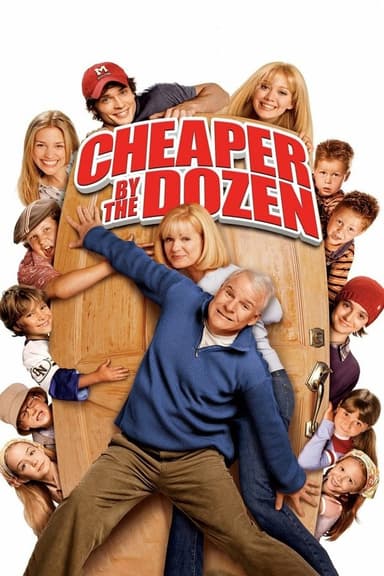
Funny Farm
1988 • Comedy • PG
Sportswriter Andy Farmer moves with his schoolteacher wife Elizabeth to the country in order to write a novel in relative seclusion. Of course, seclusion is the last thing the Farmers find in the small, eccentric town, where disaster awaits them at every turn.
Runtime: 1h 41m
Why you should read the novel
Jay Cronley’s novel, Funny Farm, offers an absorbing literary experience full of humor and sharp wit that’s difficult to fully translate onto the screen. In the pages of Cronley’s original work, readers can savor the book’s clever, often self-deprecating narrative voice and enjoy immersive descriptions of rural life and its zany cast of characters.
Unlike the time constraints of a feature film, the novel provides deeper insight into the protagonist’s thoughts and motivations, delivering comedic moments that develop more naturally and organically. The book allows you to slow down and appreciate Cronley’s unique storytelling style, giving more context to the mishaps and building greater empathy for the characters’ struggles as they adapt to their new environment.
For fans of character-driven, situational comedy and anyone who appreciates the subtlety and craft of well-written humor, the Funny Farm novel is a must-read. Its hilariously observant perspective, coupled with nuanced, relatable misadventure, ensures that the original book offers rewards that extend far beyond the film adaptation.
Adaptation differences
One of the most notable differences between Jay Cronley’s novel and the 1988 film adaptation is the portrayal of the main character, Andy Farmer. In the book, Andy’s flaws and frustrations are highlighted with a sharper, more cynical edge, while the movie softens his rougher qualities, making him a bit more sympathetic to mainstream audiences. This results in a different tone, with the film leaning more toward lighthearted comedy and the book occasionally venturing into darker, self-reflective territory.
The supporting cast of eccentric townspeople is also more varied and fleshed out in the novel. The book delves deeper into their unusual quirks, relationships, and histories—either omitted or simplified for the sake of runtime in the movie. Some characters and several subplots, particularly those that add to the sense of absurdity surrounding the Farmers’ attempts to adapt to rural life, are trimmed or excluded entirely from the film.
Another major difference is the treatment of the relationship between Andy and his wife, Elizabeth. The novel explores their marital tensions and personal aspirations in much greater depth, allowing for a more realistic progression of their bond and conflicts. The movie, by necessity, compresses these issues, focusing more on comedic set pieces and less on emotional nuance.
Finally, the conclusion of Funny Farm undergoes a significant change from page to screen. The book’s ending provides a more satirical, ambiguous sense of closure, in keeping with Jay Cronley’s dry humor, while the film opts for a more conventionally upbeat and tidy resolution. These differences make reading the novel a distinct and richly rewarding experience for those interested in a deeper dive into the story’s themes and characters.
Funny Farm inspired from
Funny Farm
by Jay Cronley











